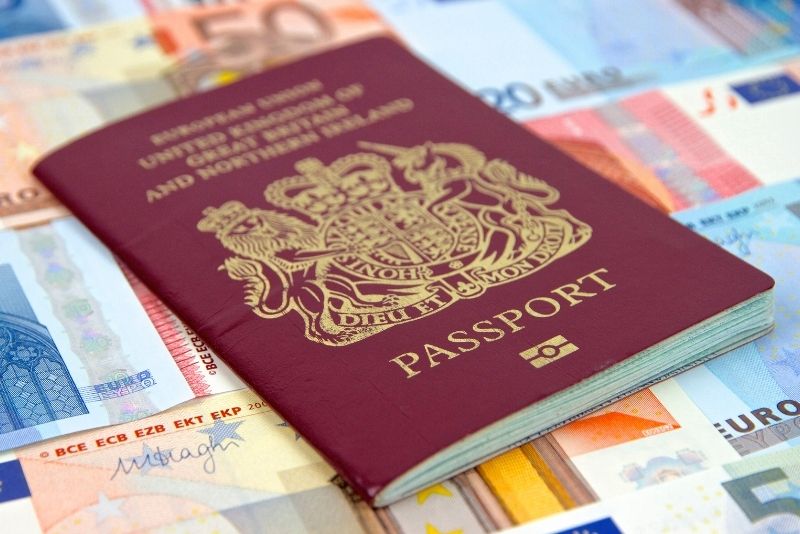Have you got the right travel insurance for your holiday?

It’s that time of year when we all start to think about holidays. According to Moneysavingexpert.com, by mid-January nearly 40% of those surveyed had already booked a holiday abroad this year – with another 30% having not yet booked but hopeful!
Recent BBC News headlines about one holidaymaker’s motorcycle crash caught our eye. It surrounded the case of a man who was left with serious injuries, and £20,000 of medical bills, as he had exceeded the length of term of his holiday.
Another Which? headline announced that ‘Four in 10 travel insurance policies offer no protection for air passengers if holidays are cancelled owing to strikes’.
This has got us thinking about all things travel insurance, and some of the pitfalls that could be faced when holidaymakers don’t opt for the right type of insurance or read ‘the small print’.
Are there different types of travel insurance for different types of holidays?
Whether you should opt for specific travel cover for your holiday depends on a number of factors, including the type of holiday you’re taking, the activities you’ll be participating in, and your personal circumstances. Here are some things to consider:
Destination: If you’re traveling to a destination that is considered high-risk, such as a country with a high level of crime or political instability, you may need a travel insurance policy that provides specific coverage for this type of situation.
The type of holiday: If you’re taking a more adventurous holiday, such as a ski trip or a safari, you may need a travel insurance policy that specifically covers the activities you’ll be participating in. Make sure to check the policy to ensure that it covers all the activities you have planned.
Pre-existing medical conditions: If you have a pre-existing medical condition, you may need a travel insurance policy that specifically covers this. Make sure to disclose all relevant information when purchasing travel insurance to ensure that you’re fully covered.
Length of the trip: If you’re going on a long trip, you may need a travel insurance policy that provides coverage for an extended period of time. Make sure to check the policy to ensure that it covers the entire duration of your trip.
Budget: Travel insurance can be an added expense, but it can provide peace of mind and financial protection in case of an unexpected event. Consider your budget when choosing a travel insurance policy and choose a policy that provides the coverage you need at a price you can afford.
Ultimately, whether you should opt for specific travel cover for your holiday will depend on your individual circumstances and needs. It’s important to carefully consider all of the factors listed above and choose a travel insurance policy that meets your specific needs.
Common travel insurance pitfalls
Nobody likes reading the small print, but when it comes to your insurance, the devil is in the detail. If our clients aren’t sure what they need, we always invite them to discuss their requirements with us at our specialist Farnham and Oxford offices, either in-person or over the telephone.
Exclusions: Travel insurance policies typically come with exclusions, which are specific situations that are not covered under the policy. These could include anything from failure to have the recommended inoculations, to failure to hold the right documents for travel. One of the most common exclusions is engaging in sports or activities not covered by your policy. Make sure to carefully review the policy’s exclusion list to understand what is and is not covered.

Pre-existing medical conditions: Many travel insurance policies have exclusions for pre-existing medical conditions, or they may require you to pay extra for coverage. It’s important to declare any pre-existing conditions when purchasing travel insurance to ensure that you’re covered. Yes, it may mean that you will need to use a different provider, or pay a different premium, but the important factor is that you will be covered if you require medical assistance. If you do fall ill or have an accident during your holiday, make sure you keep hold of all documents and receipts.
Limits on coverage: Travel insurance policies have limits on the amount of coverage they would pay out in the event of a claim. Check the cancellation cover limit – if the policy has a limit of £5,000 per person, but your trip-of-a-lifetime is costing £9,000 per person, then you’ll need a higher level of cover to ensure the full cost of the trip would be refunded in the event of a cancellation claim.
Time limits: As per the case reported by the BBC, travel insurance policies may have time limits on the duration of coverage. For example, you may only be covered for up to one week, or up to 30 days. Make sure to understand these time limits and plan your trip accordingly.
Not purchasing early enough: Some policies have specific conditions for when you must purchase the insurance in relation to your trip. For example, some policies may not cover trip cancellations if you purchase the insurance after you have already booked your trip.
Strike action: While package holidays are covered by your travel company in the event of a cancellation, those planning their flights, hotels and transport separately would not be automatically covered. Travel insurer ‘Sunworld’ covers this with their terms, which doesn’t specifically relate to strike action but would cover you if no alternative transport is provided within 6 hours of a scheduled time following a delay or cancellation. It’s a good idea to talk to an expert if you are concerned about strike action and have booked components of your holiday directly.
We hope that this has helped you with knowing what to look out for in terms of your travel insurance, and that it helps you make the most of your holiday! If would like our advice, or even some in-person reassurance, please do contact our travel specialists in our Farnham or Oxford branches directly. The travel team would be happy to answer any questions you have.




